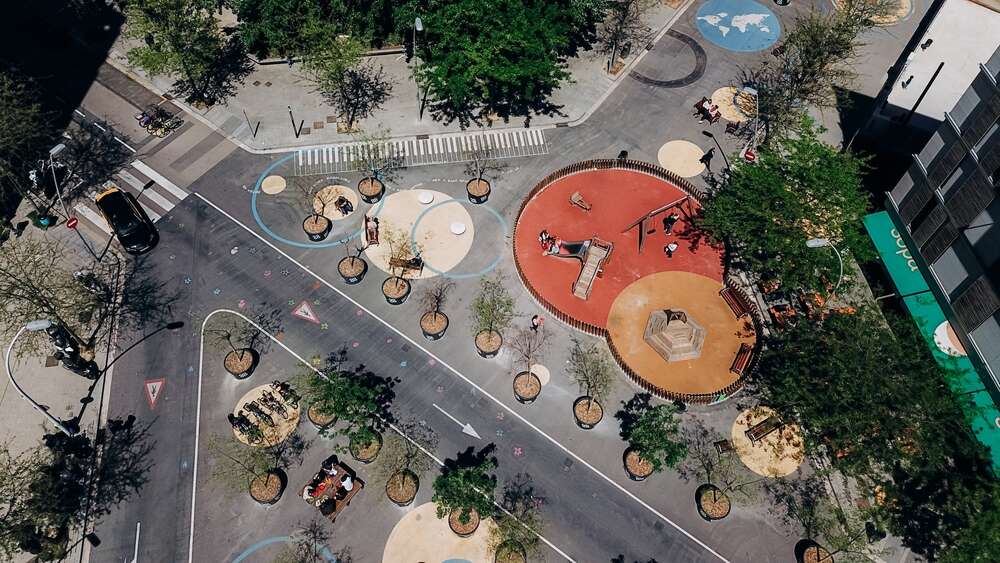
By now, you might already know what a 15-minute city is – “The ’15-minute city’ is an approach to urban design that aims to improve quality of life by creating cities where everything a resident needs can be reached within 15 minutes by foot, bike or public transit,” we’ve put it simply in the past.

“This concept puts an emphasis on careful planning at the neighbourhood level, giving each district the features it needs to support a full life – including jobs, food, recreation, green space, housing, medical offices, small businesses and more. And importantly, it’s a full life that doesn’t require a car.”
The 15-minute city concept, with its promise of more sustainable and convenient urban living, has caught the attention of several cities worldwide.
Where are all the 15-minute cities?
Paris
Paris has emerged as a pioneering city in embracing the 15-minute city concept, largely due to the efforts of Mayor Anne Hidalgo. The hallmark of Paris’s approach is the transformation of schools into ‘neighbourhood capitals’. By refurbishing schoolyards into parks, the city aims to provide community spaces that are accessible for various activities during weekends or after school hours.
Additionally, a significant part of the initiative is the plan to repurpose half of its 140,000 car parking spaces. These spaces are envisioned to be converted into green areas, playgrounds, neighbourhood meetups, or bike parking spots. The overarching goal is to make all streets across Paris bike-friendly by the year 2026, promoting a pedestrian-centric urban environment.
Shanghai
In Shanghai, the city authorities announced plans in 2016 to introduce what they termed as 15-minute community life circles. This initiative aims to ensure that residents have access to all day-to-day necessities within a mere 15-minute walk. The ripple effect of Shanghai’s initiative has been quite significant, inspiring 50 other Chinese cities to consider implementing the 15-minute city concept. This trend underscores a broader shift towards urban sustainability within China, reflecting the potential transformative impact of the 15-minute city model.
Oxford
The UK is also navigating towards enhanced urban sustainability with a countrywide renaturalisation programme. This programme is geared towards enabling every resident to reach green areas or open water within a 15-minute walk from their homes. It represents a broader effort to ameliorate the quality of life for urban dwellers across the country, aligning with the essential ethos of the 15-minute city concept.
However, the road towards fully realising the 15-minute city model is not without hurdles, with opposition from certain quarters as witnessed in cities such as Oxford.
Barcelona
In Barcelona, the innovative experiment with ‘superilles‘ or super districts stands as a notable endeavour towards the 15-minute city model. The superilles concept is structured around grouping several housing blocks into a superblock, significantly restricting car access to promote pedestrianisation. The spaces reclaimed from vehicular traffic are repurposed for green areas and recreational activities. This tactic, often referred to as “tactical urbanism”, allows for the temporary testing of these arrangements to gauge their impact before making a long-term commitment. The objective is to reduce motorised traffic by 21%, addressing the noise and air pollution challenges that currently plague more than half the city’s residents.
Honourable mentions
A host of other cities are also on the pathway to embracing the 15-minute city model. Cities like Bogotá, Buenos Aires, Melbourne, Milan and Portland are exploring or implementing 15-minute city policies in a bid to foster more sustainable and people-centric urban environments. The flexibility of the concept is further demonstrated as some cities are considering variations like 10-minute or 20-minute cities to better align with their unique urban contexts
[Read more: 15-minute cities: Where they can be found in the UK]






